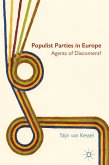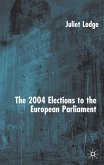Populism is a concept that is currently in vogue among political commentators and, more often than not, used pejoratively. The phenomenon of populism is typically seen as something adverse and, in the European context routinely related to xenophobic politics. What populism exactly is and who its main representatives are, however, often remains unclear. This text has two main aims: to identify populist parties in 21st century Europe and to explain their electoral performance. It argues that populist parties should not be dismissed as dangerous pariahs out of hand but rather that their rise tells us something about the state of representative democracy.
The study has a broad scope, including populist parties of various ideological kinds - thus moving beyond examples of the 'right' - and covering long-established Western European countries as well as post-communist countries in Central and Eastern Europe. It presents the results of an innovative mixed-methods research project, combining a fuzzy set Qualitative Comparative Analysis (fsQCA) of populist parties in 31 European countries with three in-depth case studies of the Netherlands, Poland and the United Kingdom.
The study has a broad scope, including populist parties of various ideological kinds - thus moving beyond examples of the 'right' - and covering long-established Western European countries as well as post-communist countries in Central and Eastern Europe. It presents the results of an innovative mixed-methods research project, combining a fuzzy set Qualitative Comparative Analysis (fsQCA) of populist parties in 31 European countries with three in-depth case studies of the Netherlands, Poland and the United Kingdom.







